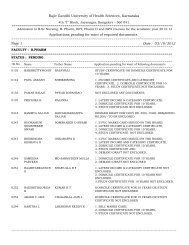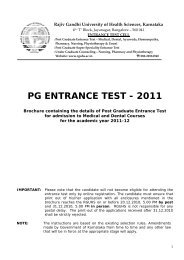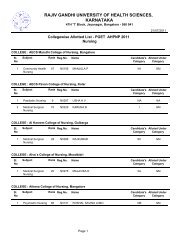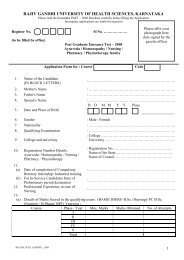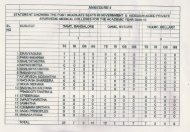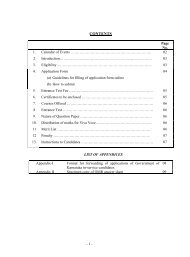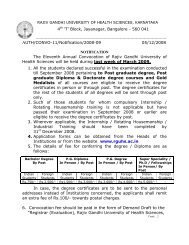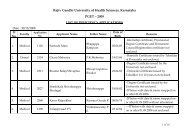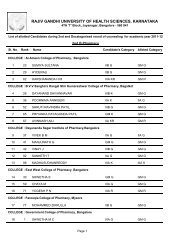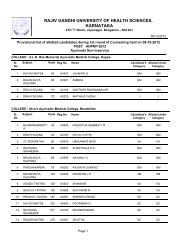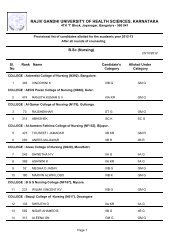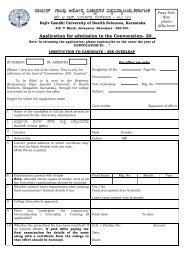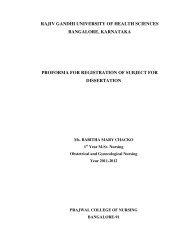Pharm D Revised Regulations 2008 - Rajiv Gandhi University of ...
Pharm D Revised Regulations 2008 - Rajiv Gandhi University of ...
Pharm D Revised Regulations 2008 - Rajiv Gandhi University of ...
You also want an ePaper? Increase the reach of your titles
YUMPU automatically turns print PDFs into web optimized ePapers that Google loves.
53Theory : 3 Hrs. /Week1. Quality Assurance:3.2 PHARMACEUTICAL ANALYSIS (THEORY)a. Introduction, sources <strong>of</strong> quality variation, control <strong>of</strong> quality variation.b. Concept <strong>of</strong> statistical quality control.c. Validation methods- quality <strong>of</strong> equipment, validation <strong>of</strong> equipment and validation<strong>of</strong> analytical instruments and calibration.d. GLP, ISO 9000.e. Total quality management, quality review and documentation.f. ICH- international conference for harmonization-guidelines.g. Regulatory control.2. Chromatography:Introduction, history, classification, separation techniques, choice <strong>of</strong> methods.The following techniques be discussed with relevant examples <strong>of</strong>pharmaceutical products involving principles and techniques <strong>of</strong> separation <strong>of</strong>drugs from excipients.a. Column Chromatography: Adsorption column chromatography,Operational technique, frontal analysis and elution analysis. Factorsaffecting column efficiency, applications and partition chromatography.b. TLC: Introduction, principle, techniques, R f value and applications.c. PC: Introduction, principle, types <strong>of</strong> paper chromatography,preparation techniques, development techniques, applications.d. Ion-exchange chromatography: Introduction, principles, types <strong>of</strong> ionexchange synthetic resins, physical properties, factors affecting ionexchange, methodology and applications.e. HPLC: Introduction, theory, instrumentation, and applications.f. HPTLC: Introduction, theory, instrumentation, and applications.g. Gas Chromatography: Introduction, theory, instrumentation-carriergases, types <strong>of</strong> columns, stationary phases in GLC & GSC. Detectors -Flame ionization detectors, electron capture detector, thermal conductivitydetector. Typical gas chromatogram, derivatisation techniques,programmed temperature gas chromatography, applications.h. Electrophoresis: Principles <strong>of</strong> separation, equipment for paper and gelelectrophoresis, and application.i. Gel filtration and affinity chromatography: Introduction, technique,applications.



